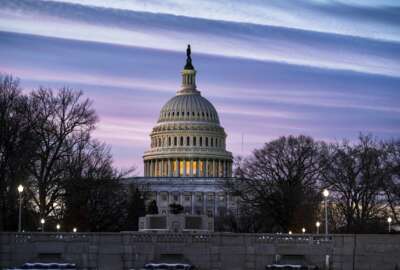Agencies face regulatory challenges in spurring innovations on the Web
While the Internet is a key priority for federal agencies to create economic prosperity, various rules set by regulatory agencies are hindering the fast-pace growth...
By Taeja Smith
Special to Federal News Radio
Internet policymaking has stubbed growth and innovations on the Web. Daniel Weitzner, the White House’s deputy chief technology officer, said alternatives to government regulatory policies are hindering the ability for companies to take advantage of the opportunities the Internet gives.
The Obama administration’s international action plan is an example of how regulations have stymied the potential for growth and innovations. 
“Despite everyone’s best intentions, these rules can’t keep up with the pace of innovation and hurts innovators and consumers,” he said.
Weitzner said America is continuing its open-government data revolution by joining 33 other countries in the Organization for Economic Co-operation and Development. OECD is using the international action plan as its grounding principles for economic cooperation and development.
International set of principles
The OECD is a global investor seal of approval. It acts as a soft-law power governing those seeking to do business internationally by having a set of universal rules agreed upon by participating nations.
For example, a U.S. Internet service provider faces a non tariff trade barrier when it has to host all of its data in that country because of a different set of rules and requirements. Weitzner said economies of scale would immediately disappear if all countries wanted a separate facility built on their turf. This ultimately creates an “unacceptable compliance burden for global-Internet services.”
OECD universal
The Internet is a critical element of economic progression and a significant portion of economic growth, according to Data.gov .
“[The Internet] is a priority to the federal agencies not only as a key source for commercial innovation, but also as a continuing platform for extraordinary social innovation and transformation in the political process,” said Weitzner.
Weitzner said global reach is important not only for business matters but also for a foreign policy in the extension of openness and democracy among nations. He said there is a need to increase global commitment to Internet openness through OECD.
Reaching across the Pacific
The OECD Principles are one way global reach continues intertwining with the Trans-Pacific Partnership negotiation. The comprehensive trade agreement around the Pacific realm gathers a variety of sectors on issues concerning the Internet and its policies. TPP is the first trade agreement that will address cloud and Internet services.
Another way is the February release of the consumers’ privacy bill of rights. This U.S. document is consistent with the international policy of OECD.
Weitzner has called on Congress to implement the consumers’ bill of rights as a foundation for consumer privacy protection in commercial environments. He also called on companies to use the bill of rights through the enforceable codes of conducts developed by the multistate holder process convened by Commerce.
Commerce will hold its first meeting on the broad stakeholder process Thursday to develop a code of conduct for mobile apps privacy policy.
Taeja Smith is an intern with Federal News Radio.
RELATED STORIES:
White House expands regulatory overhaul effort
What does Google’s new privacy policy mean for feds?
Open government advocates seek greater access to congressional data
Open government data conference
Copyright © 2025 Federal News Network. All rights reserved. This website is not intended for users located within the European Economic Area.





